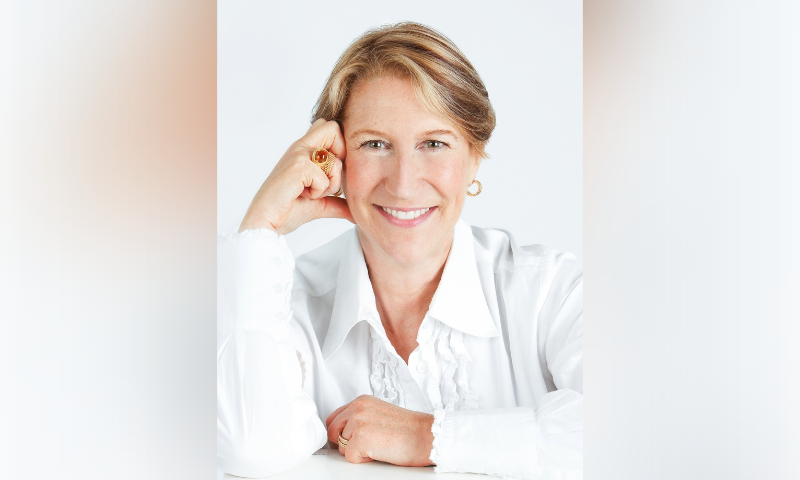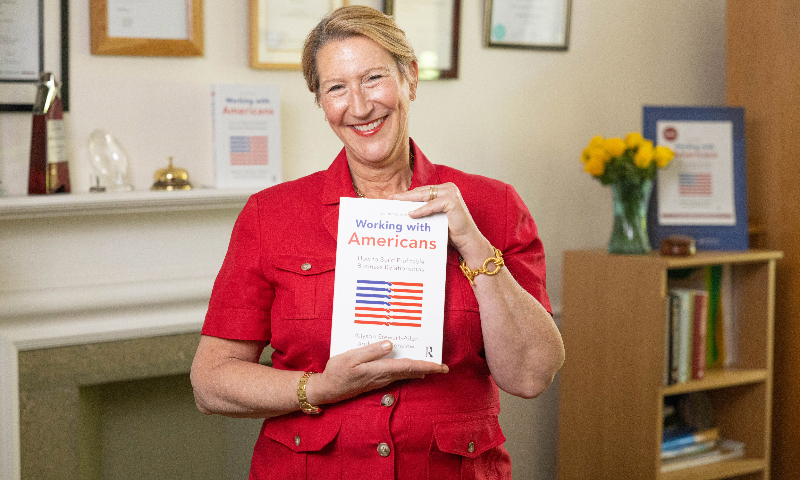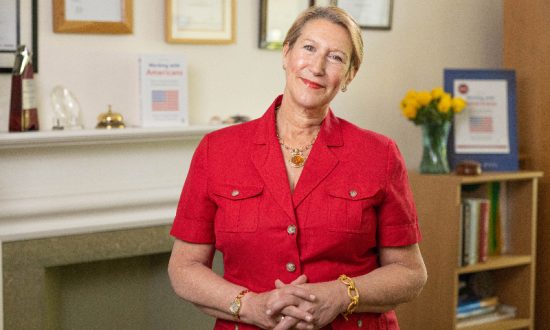Allyson Stewart-Allen is a renowned advisor, author, speaker, broadcaster, educator and Non-Executive Director whose expertise in brand internationalisation is sought by leading businesses globally through her consultancy, publications, appearances and corporate education. A Californian based in Europe for over 30 years, Allyson applies her extensive international consulting experience, MBA education with Dr. Peter Drucker and languages (French, German) to the company she founded, International Marketing Partners. Having advised over 260 organisations across 27 countries, Allyson helps leaders successfully and profitably span international and functional boundaries. She is the creator of the LinkedIn learning programme Leading International Growth, as well as author of both editions of the best-selling book Working with Americans.
Recently, in an exclusive interview with CXO Outlook Magazine, Allyson shared her insights on the influence of technology on the marketing landscape, her professional trajectory, the inspiration behind establishing International Marketing Partners Ltd, significant career milestones, future plans, and much more. The following excerpts are taken from the interview.
How has technology changed the Marketing landscape? Where do you see it heading in the next 5 years?
The Marketing landscape has changed significantly over the last 10 years due to not only web applications that make measuring the impact of marketing campaigns so much easier, but we now can learn a lot about those that could and do transact with our organisations. The next 5 years will be revolutionary since generative AI will make customer experiences more personalized but also potentially less human unless we’re careful. I think it’s really important that we not forget the importance of empathy, of talking or meeting with customers or clients in real life. There’s definitely a real risk that marketers and organisations more generally view technology as the answer rather than the enabler.
Allyson, please tell us about your professional and personal background.
So I was raised in Los Angeles but for 4 years in Munich between ages 8-12. This was truly a life-changing experience for me, as my father’s company transferred us there and I’m sure explains why I’m back in Europe again now as an adult since it was so wonderful to experience another culture, language and all that comes with it. On our return to LA, I decided to study French and of course the culture along the way since you can’t study one without the other, which sparked my curiosity about the world.
At University, I decided getting an undergraduate degree in International Marketing would let me learn even more about how to arbitrage the cultural differences which inspired me to get an MBA as well in the same subject. After my first real job after that MBA degree with PwC in LA as a strategy consultant, I hoped they would send me to a European office but it would mean working at least 10 years there before they’d entertain the idea. So, instead I created my own marketing campaign to land me a role in Europe which I successfully did, arriving in London for a similar strategy consulting role with PA Consulting Group in 1988.
A couple of years after moving here, I met a wonderful man, Graham, and have never left! We married in 1995 and had our daughter Grace in 1997 who’s now an extremely accomplished woman with a Master’s degree from Oxford University and is now an archivist for Burberry. In 1991, after the PA Consulting role and then another with Hay Management Consultants, I knew early on in my career that I don’t fit easily into rigid corporate cultures so set up my company, International Marketing Partners to help companies grow internationally.
So far, I’ve worked with over 260 well-known businesses across 27 countries and am really proud of this achievement not least because it’s taught me so much about the world and challenged my assumptions. When I’m not advising clients, I’m contributing as a broadcaster for a range of international TV, radio and print media on the challenges of succeeding internationally and usually about the United States having written my book Working with Americans in 2002 and more recently the 2nd edition which was published in 2020. When not thinking about work, I relax by going to the cinema, cycling and adding to my perfume collection which is my favourite art form. If I could bring anyone to my fantasy dinner party, it’d be Jean-Claude Ellena who was the house nose for Hermes and is the most gifted fragrance creator there is.

What inspired you to start International Marketing Partners? What sets it apart from other market competitors?
I discovered while working for large marketing consulting firms that there were ways to do it better, where the type of advice companies need when growing across borders and cultures is beyond templates and spreadsheets. So what sets my company apart is transferring the knowledge from one industry to another since no one sector has a monopoly on international success.
In your current role, what kind of challenges do you face and how do you overcome them? What is the best part about the work you do?
The challenges I face are usually getting people aligned within my client’s organization. It’s often the case that not everyone is behind the idea of adapting their products or services for international markets given there are many vested interests. So that takes some time and diplomacy! The best part about the work I do is learning – about the client’s industry, about their challenges and being able to solve their problems concretely and help them be successful and profitable. It’s very rewarding being able to see results, much like a doctor that gives their patient a remedy that reduces their pain.
You are an Associate Fellow, Programme Director at Saïd Business School, University of Oxford. Can you please tell us about the School and your role in it?
Said Business School is a fairly new institution within the University of Oxford and offers leadership programmes for business leaders as well as degrees such as the EMBA and MBA. My role is to create a customized leadership programme that addresses the needs of the School’s client organization which could mean they want to focus on building their leadership capabilities, make their leaders more resilient, more effective communicators and negotiators, more globally minded. So having my consulting background and TV production work which I did during my summers while at University, it means I’m able to create a live leadership learning event which is very much like a show with a story line and impact on the audience. When I’m not creating these programmes as a Programme Director, I’m often teaching on those run by others at the School on a range of subjects: negotiating across cultures, developing your leadership brand, managing dilemmas to name a few.
Can you name a person who has had a tremendous impact on you as a leader? Maybe someone who has been a mentor to you? Why and how did this person impact your life?
Without question, I’d have to say it was my MBA Professor Dr. Peter Drucker, who wrote 39 books on leadership and management and was way ahead of his time. While at The Drucker School at Claremont Graduate University in the mid-1980’s, he was my Business Strategy professor and predicted so many events and developments in the world of business that have since taken place. For example, I had to write a paper for his class and, as an International Marketing major, was pretty convinced there was little I could teach this world-famous savant. Having gone to see him to get his advice, he asked me in the meeting “so you know that in the future, companies will have to pay attention not just to how they do business, but where they do business too. They’ll need to integrate themselves in the communities where they operate so maybe you could cover this since this will impact their brands around the world.”
This led to me writing about what we now label as “corporate social responsibility” but didn’t have a name at that point. He was truly gifted as a forecaster of where the world was heading, whether in business or society more broadly by at least 20 years!
In your opinion, what are the most important skills you need to break into Marketing?
To be successful in a Marketing role, you need to be lateral thinking, strategic, analytical and most importantly be able to engage a wide variety of stakeholders.
It’s a function in companies that cuts across almost every other function and relies on Finance, Operations, IT, Sales, Manufacturing, HR and the others in order to be successful. And the reason for this is because you shape the corporate brand, the employer brand and those facing clients and customers. So it really does rely on a range of other internal teams if you are trying to create and sustain the intangible asset we know as “a brand.”

Which one of your accomplishments makes you the proudest to date?
I think I’m proudest of being the only person to still hold the record for winning the Excellence in Practice Award twice, given by the European Foundation for Management Development (EFMD). One was for my leadership programme for Lufthansa on behalf of London Business School, and the other for BAE Systems while working as an Associate Fellow for Said Business School at Oxford University.
What is the one lesson learnt that’s unique to being a woman leader?
To strive to be the best in your industry and/or function regardless of being a woman, as you set an example for everyone else when you do so regardless of your gender. There are many very poor leaders of all persuasions around the world, so you being better than most is worthy in and of itself.
Where do you see International Marketing Partners in the next 5 years?
I see my company moving more into helping individual leaders and teams be even more effective in engaging others across their organisations – both functions and countries. One thing we know about good leaders is they build effective coalitions to get things done, and it’s often the case that they focus too much on the here-and-now and not enough at the 10,000-meter level. Thinking strategically and recognising that getting things done through others is really what leadership is about.
Which Marketing certification courses, skill development paths, books, or channels do you recommend for upskilling aspiring professionals?
I would recommend taking a look at what your professional body representing the Marketing discipline in your country has to offer. So here in the UK, there’s the Chartered Institute of Marketing (on whose Board I served as a Non-Executive Director) which offers courses, recommends books, has webinars, talks from experts and networking amongst other ways to learn more about our toolkit.
There’s LinkedIn Learning which also has some great short-courses which includes the one I created for them recently, Leading International Growth, alongside TED talks. You could also go meet with your Chief Marketing Officer to ask them for advice or maybe even seek a placement in that team for 6-months to better understand the breadth of this discipline.


